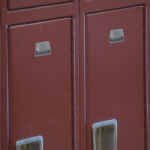
WOLCOTT, Vt. (WCAX) – An uptick of behavioral incidents in Vermont’s schools has been well documented in recent years. But one school in Lamoille County has found a method that is resulting in fewer students acting out and needing behavioral intervention.
Examples of behavioral incidents include students putting their hands on one another, throwing something, or being overly defiant.
Wolcott Elementary School says in the 2021 – 2022 school year, there were 300 behavioral incidents in the building home to roughly 100 students.
Since then, the school has partnered with the Lamoille Restorative Center and Up For Learning to bring new practices and ideas to the school. Now the school has seen a dramatic decrease in behavioral incidents with just 15 in the first half of this school year. We got a chance to take a look at how they operate.
Leslie Carpenter’s second-grade class is starting the day with a morning circle, a daily ritual to kick off learning. While it seems simple at the outset, Carpenter says it’s a way for the students to hear and respect one another. “It kind of levels the playing field, it gives everybody a relevant talking point, and they all have an opportunity to share their opinions or their experiences or their feelings,” said Carpenter.
Over the past two years, educators like Carpenter have been trained in preventative and restorative practices, one of which is stopping putting disruptive students in time-out. Now, there’s a “peace corner” for students to decompress when they’re beginning to act out.
It isn’t punitive, and Carpenter says many students spend time there without being asked. “We’re just wanting to give kids the tools that they need to feel better about what’s going on and move on with their day,” said Carpenter.
“I think getting back to sort of the common practices of school and the rituals and regular practices just made a big difference for kids when they got back.” Principal Dennis Hill says in general, COVID created dysregulation across communities. In addition to operations returning to normal, these practices have been impactful in preventing escalation.
He initiated a partnership with Lamoille Restorative Practices and Up For Learning with a roughly $10,000 grant a year.
“Kids will know how to self-advocate how to self-regulate, and how to solve problems without violence or anger. Those are key things, especially for some of these rural communities where these kids, you know, struggle with some of those behaviors at home in the community,” said Hill.
Hill says the goal is to have staff trained in a way where practices are ingrained in their operations. Both organizations are present in dozens of schools across the state. The team says one reason it seems to have worked at Wolcott is the size and support from the educators, whom they meet with weekly and during staff meetings.
“The community is able to have really meaningful conversations about change. So I think that says the nature as things get bigger, it’s harder to have those in-depth conversations. And one of the goals of the restorative practices is that we get to hear from everybody,” said Mark Scott with the Lamoille Restorative Center.
And it’s not a change that happened overnight.
“Where we are now is taken, you know, a couple of years and it’s kind of a slow process, but it’s really worth it in the end when we’re able to have these like really in-depth conversations,” said Scott.
PBIS, or Positive Behavior Interventions and Support, is a state-organized program also to prevent conflict. Hill says PBIS and the additional restorative practices dovetail well together and complement each other with restorative practices more targeted towards issues and concerns that come up.
